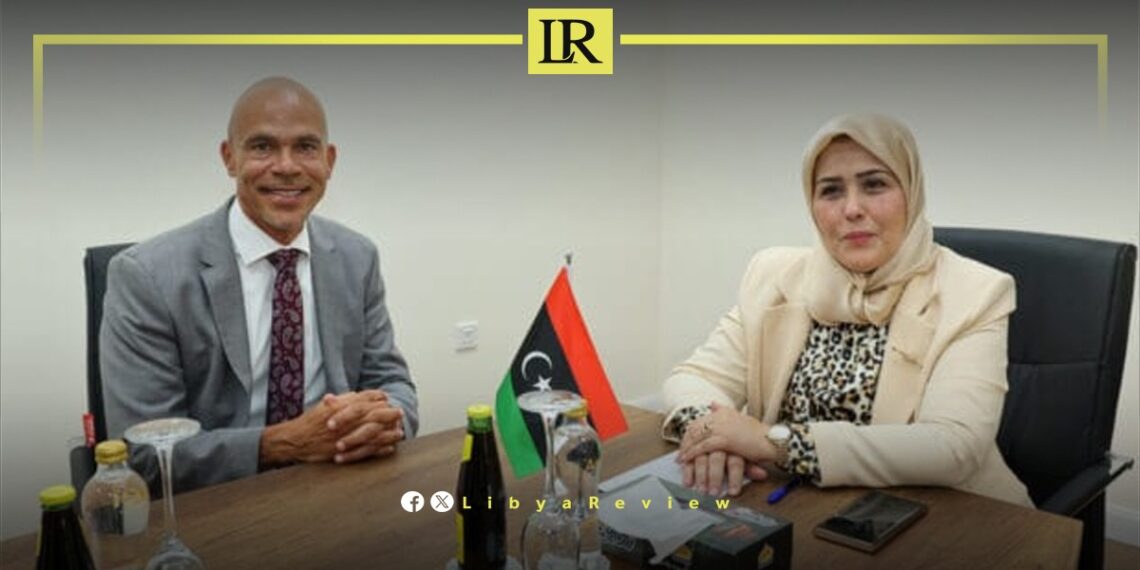A Libyan parliamentary member, Intisar Shneib, who chairs the Women and Children Affairs Committee in the House of Representatives, affirmed the legitimacy of the government led by Osama Hammad during a meeting with Patrick Collins, the Political Officer at the U.S. Embassy in Libya.
The discussion also focused on supporting and empowering women across various fields and enhancing their role in the country’s ongoing developmental and political processes. Shneib praised the efforts of the Libya Development and Reconstruction Fund in these areas.
Notably, Osama Hamad, the Prime Minister of the Parliament-designate government, recently made his first official foreign visit to Egypt. This visit sparked a reaction from the Government of National Unity (GNU), which expressed its disapproval of Egypt’s official reception of what it described as “parallel entities” that lack international recognition.
In response to this diplomatic move, the GNU, led by Abdul-Hamid Dbaiba , demanded that Egyptian intelligence officials stationed in Tripoli leave Libyan territory immediately. This action was met with strong criticism from Speaker of the House of Representatives, Ageela Saleh, who condemned the expulsion of the Egyptian officials by the Dbaiba government, labeling it as an irresponsible act that does not represent the Libyan people.
Th3 Libyan Government of National Unity (GNU), led by Prime Minister Abdul Hamid Dbaiba, expressed strong disapproval over Egypt’s recent decision to officially receive Osama Hammad.
In a statement, the GNU’s Ministry of Foreign Affairs and International Cooperation condemned Egypt’s move, describing it as a “diplomatic misstep.”
The GNU criticised the reception of Hammad, claiming that his government lacks international recognition and legitimacy. The ministry noted that Egypt’s actions undermine efforts to maintain Libya’s unity and stability and are inconsistent with the broader international consensus aimed at preventing Libya from sliding back into division and conflict.
The GNU’s statement also emphasized the potential negative consequences of this diplomatic engagement, warning that such unilateral actions could exacerbate tensions and derail ongoing efforts to stabilize Libya. The ministry expressed disappointment that Egypt, a key regional player, would take steps that could contribute to further polarization in Libya, rather than supporting efforts to unify the country.


